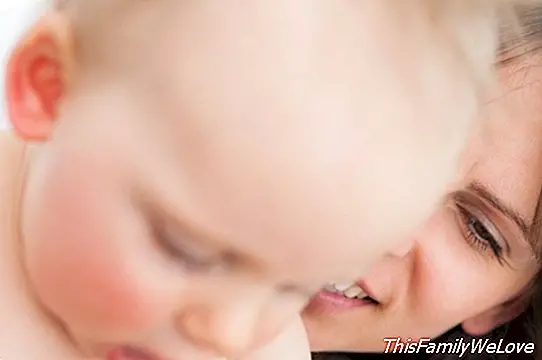Maternal depression and its effects on pregnancy

Pregnancy, although it is a unique and wonderful stage, can become for some women in a time of anguish and difficulty, what is commonly known as maternal depression. Studies show that at least 10% of pregnant women suffer from depression between weeks 6 and 10 of the last trimester.
In addition, at least 50% of women who suffer from depression during pregnancy will also suffer postpartum depression.
Causes and symptoms of maternal depression
Between the Main causes of maternal depression, is the hormonal change that is experienced in this stage, which affects the neurotransmitters of the brain that regulate mood.
Other times, Depression is due more to external factors such as problems with the couple or stressful situations such as work problems, the loss of a loved one, a move or other stress situation.
The loss of previous pregnancies, the submission to a fertility treatment or complications during pregnancy can also place you on the verge of depression.
These factors cause a state in pregnant women known as maternal depression, which It is reflected by means of the following symptoms:
- Persistent sadness
- Sudden changes of mood
- Lack of concentration
- Anxiety
- Irritability
- Problems sleeping
- Exhausted
- Desires to eat at all times or not eat anything
Maternal depression affects the language of the baby
Besides effects that the state of depression has on pregnant women, a study conducted by the University of British Columbia University (UBC), Harvard University and the Children's Hospital of British Columbia has shown that maternal depression it influences the development of their babies' language.
The study followed three groups of mothers: one received treatment for depression with IRS, in another group mothers had depression but did not take antidepressants, and a third group without symptoms of depression. By measuring the changes in heart rate and movement of babies' eyes to sounds and video images of native and non-native languages, the researchers calculated the language development of babies in the womb, when they had been 36 weeks of pregnancy.
The extracted conclusions of this study were the following: the babies of pregnant women who suffered from depression and who were receiving treatment with serotonin inhibitors (IRS) were more able to tune in with the sounds and with the mother tongue, which translates into a greater ease for the future development of language. On the other hand, those of mothers with depression who were not receiving treatment may have more difficulties, so the period of language adjustment will be longer.
Ana Vázquez Recio




